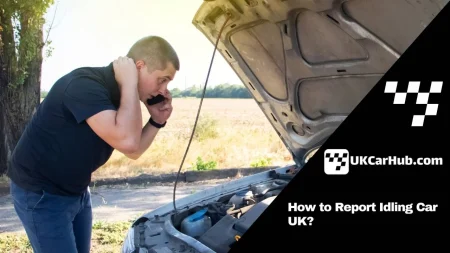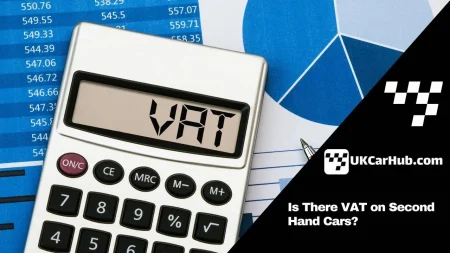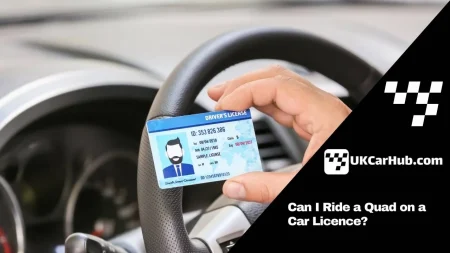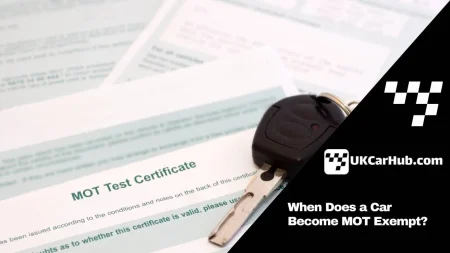Are you considering purchasing a car or moving to a new country and need to navigate the ins and outs of obtaining a driver’s license, registering your vehicle, and understanding the various obligations and regulations that come with car ownership? In this comprehensive guide, we’ll cover everything you need to know about driving licence requirements, the vehicle registration process, MOT testing and certification, car insurance obligations, traffic laws and penalties, and environmental regulations on vehicles. Whether you’re a new driver or a seasoned car owner, this post will provide you with all the essential information to ensure you’re fully compliant with all necessary regulations.
Driving Licence Requirements
When it comes to driving in the UK, having a valid driving licence is essential. Whether you are a resident or a visitor, you must possess the appropriate licence to legally operate a car on the roads. The UK has specific regulations and requirements in place for obtaining and using a driving licence. It’s important to understand these requirements in order to ensure compliance with the law and to avoid any legal consequences. Let’s delve into the key details of driving licence requirements in the UK.
- Types of Driving Licences:
In the UK, there are different types of driving licences based on the vehicles you intend to operate. The most common licence is the Category B licence, which allows you to drive a car and small goods vehicles with a maximum weight of 3,500kg. Other categories include motorcycles (Category A), heavy goods vehicles (Category C), and buses (Category D). It’s crucial to identify the type of licence that suits your needs and obligations.
- Driving Licence Application:
To obtain a driving licence in the UK, you need to apply through the Driver and Vehicle Licensing Agency (DVLA). The application process requires specific documents, such as proof of identity and address, as well as a completed application form. Additionally, you may need to provide medical fitness information and pass both theory and practical driving tests. It’s essential to complete all the necessary steps accurately and honestly to ensure the successful acquisition of your driving licence.
- Validity and Renewal:
Once you obtain your driving licence, it is valid for a certain period. In the UK, a standard car driving licence is valid for 10 years and needs to be renewed before it expires. It’s crucial to keep track of the expiration date and ensure timely renewal to avoid driving illegally. Failure to renew your licence can result in penalties and even disqualification from driving. Therefore, it’s essential to be aware of your licence’s validity and plan for renewal accordingly.
| Penalties for Driving Without a Licence: | Penalties for Driving Without Valid Insurance: |
|---|---|
| Driving without a valid licence in the UK is a serious offense. If caught, you may face fines of up to £1,000, potential disqualification from driving, and even imprisonment in some cases. It’s essential to ensure you possess a valid driving licence at all times when operating a vehicle. Failure to do so can have severe legal consequences. | Operating a vehicle on UK roads without valid insurance is also a significant offense. Apart from potential fines and penalty points on your licence, driving without insurance can lead to higher insurance premiums in the future. It’s a legal obligation to have valid car insurance in the UK, not only to protect yourself but also to ensure the safety of others in case of an accident. |
In conclusion, understanding the driving licence requirements in the UK is crucial for all motorists. Ensuring that you have the appropriate licence type, following the correct application process, and renewing your licence when necessary are all vital to staying legal on the roads. Remember, driving without a licence can result in significant penalties, so it’s essential to comply with the regulations outlined by the DVLA. By adhering to the driving licence requirements, you can enjoy a safe and lawful driving experience in the UK.
Vehicle Registration Process
In the United Kingdom, the process of registering a vehicle is a legal and regulatory requirement that must be followed. Whether you are buying a new car or importing one from another country, it is essential to understand the vehicle registration process to ensure compliance with the law.
When it comes to registering a vehicle in the UK, there are specific steps that need to be followed. Firstly, you need to obtain a V5C registration certificate, also known as a logbook, from the Driver and Vehicle Licensing Agency (DVLA). This document serves as proof of ownership and contains important information about the vehicle, such as its make, model, and registration number.
Once you have the V5C certificate, you can then proceed to fill out an application form for vehicle registration. This form can be obtained online or from a local DVLA office. It requires details about the vehicle, including its current registration number (if applicable), engine size, fuel type, and vehicle identification number (VIN).
| Required Documents for Vehicle Registration: |
|---|
|
Mot Testing And Certification
MOT Testing and Certification
When it comes to owning a car in the UK, it is important to understand the legal and regulatory requirements that come with it. One crucial aspect of car ownership is the MOT testing and certification. MOT stands for Ministry of Transport, and it is an annual test that ensures your vehicle meets the minimum safety and environmental standards set by the government. This test applies to most vehicles that are more than three years old and is designed to keep our roads safe.
The MOT test covers various aspects of your vehicle, including its emissions, braking system, lights, steering, and overall structural integrity. It is crucial to pass this test to legally drive your car on public roads in the UK. The test aims to ensure that your vehicle is roadworthy and does not pose a risk to you, other drivers, and pedestrians. This annual inspection not only promotes safety but also helps in identifying any potential issues or defects that need attention.
During the MOT test, your car will go through a thorough examination conducted by certified testers at authorized garages. They will carefully assess your vehicle’s condition and determine whether it meets the necessary standards. If your car passes the test, you will receive an MOT certificate valid for one year. However, if your vehicle fails to meet the standards, you will be provided with a list of necessary repairs and improvements that must be carried out to obtain certification. Once the required repairs are completed, you can then take your car for a retest.
The consequences of not having a valid MOT certificate can be severe. Driving without a valid MOT is against the law and can lead to heavy fines, penalty points on your driving licence, and even the possibility of your vehicle being seized. Therefore, it is essential to stay on top of your MOT testing and ensure your vehicle is tested and certified on time every year.
| Benefits of MOT Testing and Certification: |
|---|
|
|
|
|
In conclusion, MOT testing and certification play a vital role in ensuring the safety and roadworthiness of your vehicle. It is a legal requirement in the UK, and failure to comply with this obligation can result in significant consequences. By getting a valid MOT certificate, you not only demonstrate your commitment to road safety but also gain peace of mind knowing that your car meets the necessary standards. So, don’t forget to book your MOT test on time, and remember to always drive safely!
Car Insurance Obligations

When it comes to owning a car in the UK, having car insurance is not only a legal requirement but also a necessary step to protect yourself and others on the road. As a car owner, it is crucial to understand your car insurance obligations to ensure that you are fully compliant with the legal and regulatory requirements.
First and foremost, it is important to have at least a minimum level of car insurance coverage. In the UK, the legal requirement is to have at least third-party car insurance. This type of insurance covers the cost of any damage or injury caused to other people or their property in an accident where you are at fault.
Additionally, it is worth considering additional types of car insurance coverage, such as comprehensive insurance. This type of insurance not only covers third-party damage but also protects your own vehicle against theft, fire, and other unforeseen events. While comprehensive insurance is not a legal requirement, it provides peace of mind and can be beneficial in the event of an accident.
- Liability insurance is another aspect of car insurance obligations that car owners must be aware of. This type of insurance covers the cost of any legal claims made against you following an accident. It is essential to have liability insurance to protect yourself financially in case of any legal actions.
- Another crucial point to consider is the validity of your car insurance. It is essential to ensure that your car insurance is always valid and up to date. Failure to provide valid insurance documentation can result in severe penalties, including fines and even driving disqualification.
- Lastly, it is important to compare different car insurance providers to find the best coverage and price. There are numerous insurance companies in the UK offering various policies, so it’s wise to shop around and consider factors such as coverage limits, excess amounts, and additional benefits before making a decision.
In conclusion, understanding and fulfilling your car insurance obligations is of utmost importance for any car owner in the UK. Having at least third-party car insurance coverage is a legal requirement, but it is advisable to consider comprehensive coverage for added protection. Additionally, liability insurance, ensuring the validity of your insurance, and comparing different providers are essential aspects to consider when it comes to car insurance obligations. By being informed and compliant, you can drive with confidence, knowing that you have met your responsibilities as a car owner.
Traffic Laws And Penalties
When it comes to driving, it is important to abide by the traffic laws and regulations to promote safety on the road. These laws and regulations help maintain order and prevent accidents and other untoward incidents. In the UK, traffic laws and penalties are enforced to ensure that drivers and pedestrians can navigate the roads smoothly and without unnecessary risks. It is vital for all drivers to have a clear understanding of these laws and the associated penalties to avoid fines, license suspension, or even imprisonment.
One traffice law and penalty that drivers need to be aware of is speeding. Speed limits are put in place for the safety of all road users, including drivers, passengers, and pedestrians. Exceeding the speed limit can lead to accidents and endanger lives. In the UK, various penalties are imposed for speeding offenses. These penalties may include fines, penalty points on the driver’s license, or even disqualification from driving. It is crucial to adhere to speed limits and adjust driving speed according to road conditions to avoid legal consequences.
Another important aspect of traffic laws and penalties is drink driving. It is illegal to drive under the influence of alcohol or drugs in the UK. The legal alcohol limit for drivers is set at 35 micrograms per 100 milliliters of breath, 80 milligrams per 100 milliliters of blood, or 107 milligrams per 100 milliliters of urine. Violating the drink driving laws can result in severe penalties, including fines, license disqualification, community service, and even imprisonment. It is always safer to choose alternative transportation if you have consumed alcohol or drugs.
Additionally, using a mobile phone while driving is strictly prohibited in the UK. The use of handheld mobile phones while driving can lead to distraction and significantly increase the risk of accidents. Penalties for using a mobile phone while driving can include fines and penalty points on the driver’s license. It is essential to prioritize road safety and refrain from any activities that can divert attention while driving.
Overall, it is crucial to familiarize yourself with the traffic laws, regulations, and penalties in the UK. Ignorance of these laws is not an excuse and can lead to serious consequences. It is the responsibility of every driver to ensure their own safety and the safety of others on the road. By obeying traffic laws, you can contribute to a safer and more efficient driving environment.
Environmental Regulations On Vehicles
In recent years, there has been an increasing concern about the impact of vehicles on the environment. As a result, governments around the world, including the United Kingdom, have implemented environmental regulations to mitigate these effects. These regulations aim to reduce pollution and promote the use of cleaner and more sustainable transportation options. In this blog post, we will explore some of the key environmental regulations that apply to vehicles in the UK.
1. Emission Standards: One of the main aspects of environmental regulations on vehicles is the enforcement of emission standards. The UK has adopted the Euro emission standards, which set limits on the amount of pollutants that vehicles can emit. These standards are regularly updated to encourage the use of cleaner technologies and reduce air pollution.
2. Low Emission Zones (LEZs): Another important initiative to tackle vehicle pollution is the establishment of Low Emission Zones. These are designated areas where certain vehicles, especially those with high emissions, are either restricted or charged a fee to enter. LEZs help improve air quality and encourage the adoption of low-emission vehicles.
3. Vehicle Excise Duty (VED): The UK also applies an environmental aspect to Vehicle Excise Duty, commonly known as road tax. Vehicles with higher emissions attract higher tax rates, while those with lower emissions are subject to lower rates. This incentivizes the purchase and use of greener vehicles, reducing the overall carbon footprint.
| Regulation | Description |
|---|---|
| Emission Standards | Enforced to limit the amount of pollutants emitted by vehicles. |
| Low Emission Zones (LEZs) | Designated areas where high-emission vehicles face restrictions or charges. |
| Vehicle Excise Duty (VED) | Environmental aspect of road tax, with higher rates for high-emission vehicles. |
In conclusion, the UK has taken significant steps to implement environmental regulations on vehicles. These measures aim to reduce emissions, improve air quality, and promote the use of cleaner transportation options. By adhering to these regulations, individuals and businesses can contribute to a more sustainable and environmentally-friendly future.
Frequently Asked Questions
What are the requirements for obtaining a driving licence?
In order to obtain a driving licence, you typically need to be of a certain age (usually 18 or above), pass a written and practical driving test, provide proof of identity (such as a passport or ID card), and pay the required fees.
What is the process for registering a vehicle?
The registration process for a vehicle generally involves submitting the necessary documents, such as proof of ownership, proof of insurance, and a completed application form, to the relevant government agency. You will also need to pay the registration fees and taxes.
Why is MOT testing and certification important for vehicles?
MOT testing and certification is important for vehicles because it ensures that they meet the minimum safety and environmental standards. This regular inspection helps identify any potential issues or faults that could pose a risk to road users and the environment.
What are the car insurance obligations?
Car insurance obligations typically include having a valid insurance policy that provides coverage for third-party liability and personal injury. It is a legal requirement in many countries to have car insurance in order to drive on public roads.
What are the traffic laws and penalties that drivers need to be aware of?
Some common traffic laws include obeying speed limits, stopping at red lights and stop signs, using seat belts, and not driving under the influence of alcohol or drugs. Penalties for violating traffic laws can vary but may include fines, license suspension, or even imprisonment.
What are the environmental regulations imposed on vehicles?
Environmental regulations on vehicles aim to reduce their impact on air pollution and greenhouse gas emissions. These regulations may include requirements for vehicle emissions testing, fuel efficiency standards, and promoting the use of electric or hybrid vehicles.



















